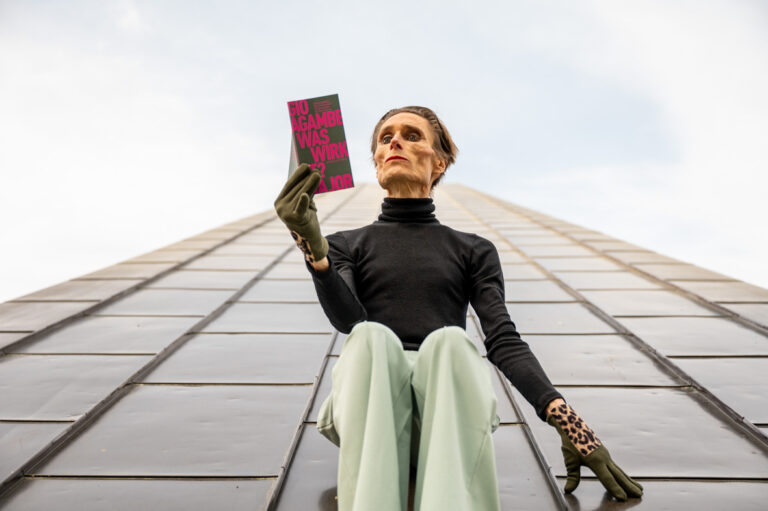Queer Situations, the first ever queer literary festival in Iceland will take place in Reykjavík and Kópavogur, this week, from the 22nd to the 24th of August. On Friday, Madame Nielsen, one of Denmark’s most daring artists, will take to the stage.
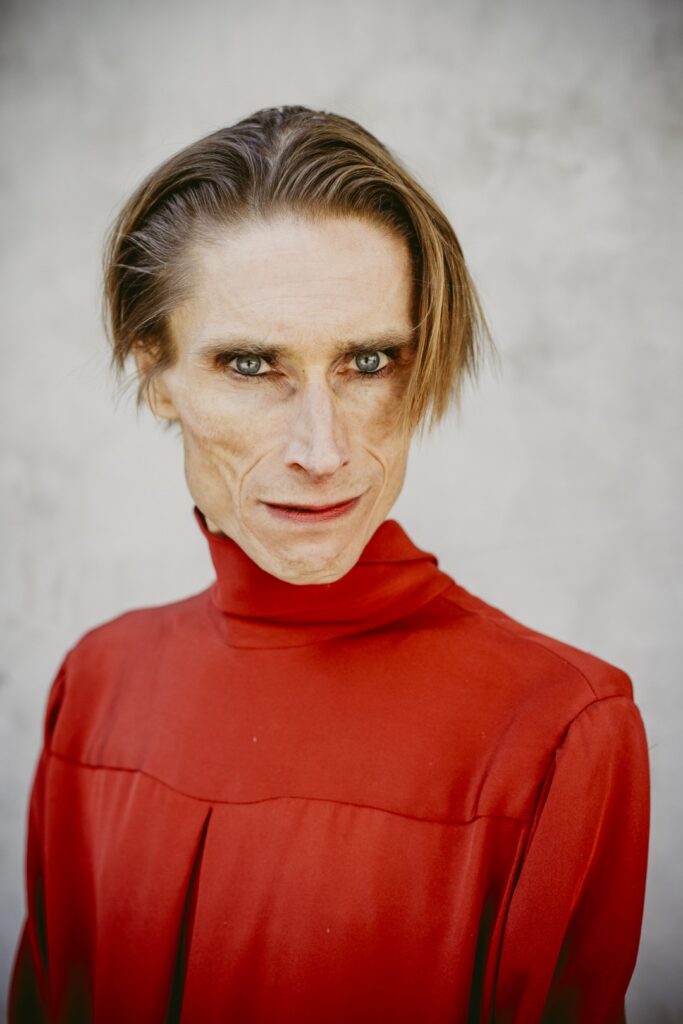
Madame Nielsen is without a doubt one of Denmark’s most exciting creatives. A multi-gendered artist, musician, writer and actress, she is perhaps most famously known for the novel Den endeløse sommer (The Endless Summer) which made a stir in 2014 (Sjón called it his literary discovery of the year), described as ‘freeing the ego from rigid societal ideas on gender, sexuality and the body.’ Other works include Selvmordsaktionen (2005) and Mine møder med de danske forfattere (2013) both being nominated for the Nordic Council Literature Prize. More recent publications include The Monster (2018) and Lamento (2020), more about them below. Her work has been described as ‘autobiography and fiction, political manifesto and philosophical tract’ as well as ‘a form of conceptual art’ in which ‘the question of how to address and represent the lives that are excluded from within the community’ are examined. All of Madame’s work is fiercely international, passionate and engrossing, it has been translated into multiple languages and won many awards.
Formerly known as Claus Beck-Nielsen, declared dead in 2001, and subsequently in 2010 staging his own public death bed and funeral. From 2002-2011 the artist was nameless, committed to exploring life beyond identity (three books of that name were published to capture Das Beckwerk’s explorations). In 2013 she was reborn as Madame Nielsen.
Whilst ‘overlooking existence’ Madame kindly took time to answer Kolbrún Björt Sigfúsdóttir’s questions in anticipation of her arrival in Reykjavik and participation in the Queer Situations Literary Festival.
You are described as an artist, musician, writer and actress – could I ask what are your main creative interests at the moment?
“My warrant, call or task in this life on this planet is to form-ulate, to give form to (the) being, to existence, to the world, to everything that was, that is, and that is to come.
How I in each case give form, with what means – if it is language, sound, pictures, movement, installation, performance etc. depends on what needs to be formulated.
But until now, language, music and performance have been my primary means.”
As someone who is known for pushing the limits of identity, what does autobiography or self mean to you?
“It is a difficult and important question. I think the question of self and non-identity is central to all my novels and literary works. In my literature there are no stable identities; identity is an illusion, a poor means used by human beings who are afraid of the vast possibilities of being and existence, who hide in the illusion of self-identity, in authenticity.
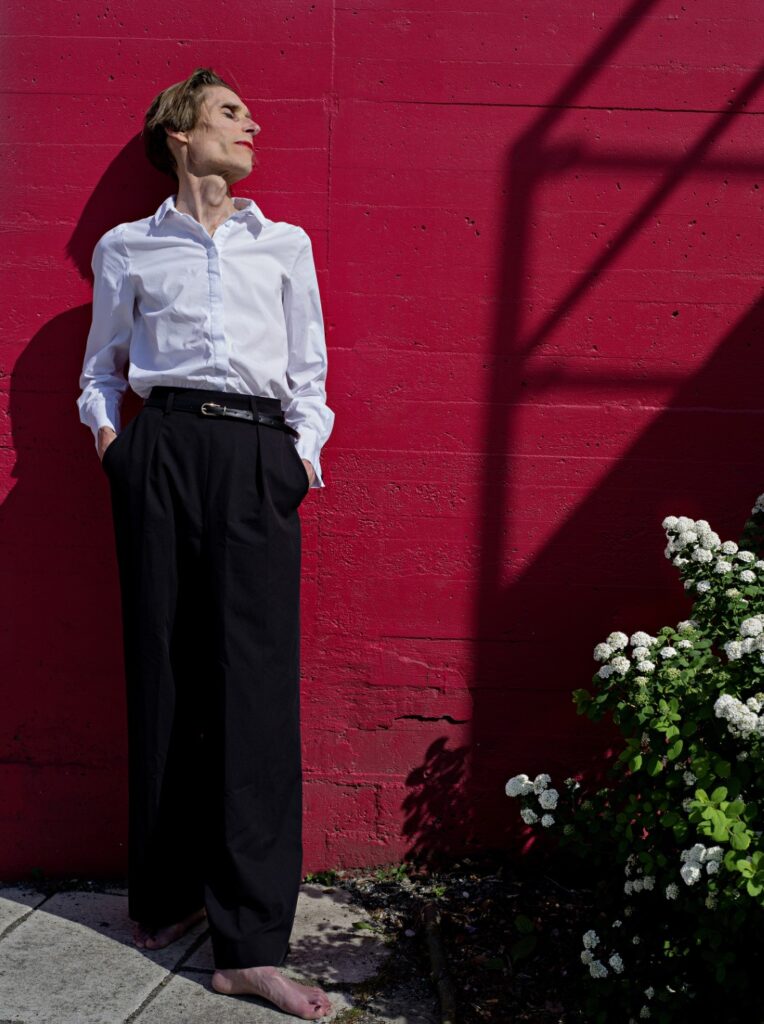
I see the human being – and any kind of living being – as an in principle endless potentiality; a potential limited by social, cultural, economical, genetical, psychological, environmental etc. etc. factors, but within these limits it is endless. And I see my task in this life to enfold my potentialities in as many different beings as possible over my life-span: boy, woman, nameless, androgyne, multi-gender, non-gender, bird, insect, alien, living, dead, ghost, zombie etc. etc.
I think the only possible future of life in peace on this planet goes through non-identity, de-identifying. Thus I am not only multi-gendered, I am beyond gender.
When people ask me about my identity, what I identify as, or
Who are you?
my answer is:
I am not.
You are not what?
I am just not.
I try to de-identify, to escape all identification, be it gender, race, species etc. etc.”
You also said in an interview that you wanted your writing ‘to be at the edge of language’ – how do you achieve that? What are the limits of text/language in your opinion? And what are your thoughts on translation with this in mind?
“I have written and published a kind of poetic in German language: Der Welt- & Zeitumfassende ein-Satz, where I try to formulate my thoughts on working and coming-into-being in language: Writing as walking/moving – to write while walking through the world – (I have published a book with -walk-works/walking works in Danish “Alverdensvandringerne” (“The all-over-the-world walks”): About 25 photo-and-text works, which move and constantly transform between poetry, fiction and documentary. They each are based on a conceptual walk in a metropol in Europe or South-America (“The Berlin Walk”, “The Paris Walk”, “The Auschwitz Walk”, “The Ciudad de Mexico Walk” etc.): At sunrise I leave the place in the city-center, where I wake-up, and walk out through the city to and beyond the outskirts through the different economical, architectural, cultural, social etc. layers of the city; and while walking and encountering people, I write and take pictures; and later I transform the material into a language-photo-work.)
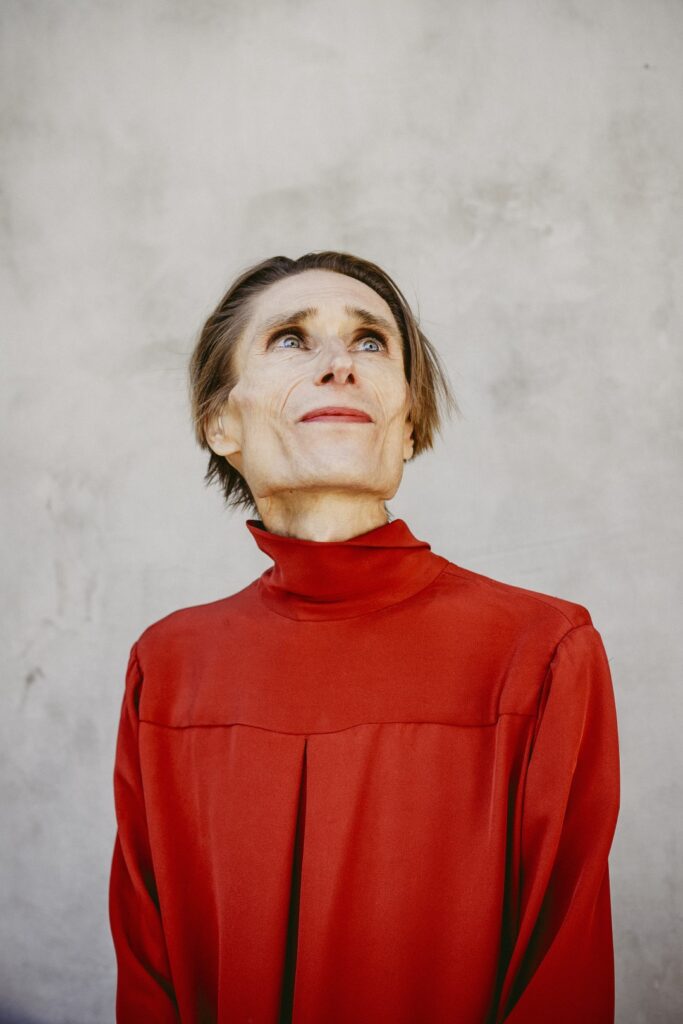
Sadly, most societies in our time – be it left-wing or right-wing or … – are getting more and more obsessed with identification – identifying others and themselves.
– writing as music: I want my novels to be pure music (the subtitle of The Endless Summer is A Requiem; and LAMENTO is a song of lamentation. etc.). – writing as de-identification, as constant transformation.
Language is unlimited, in language there are no borders, and thus the languages are not isolated, they copulate and overlap and are each in constant and endless transformation.
I also work a lot with and in translation; poetry, fiction and drama; I have translated works from Swedish, Norwegian, English, American, French and especially a lot of works from German into Danish (contemporary playwrights, poetry by Friederike Mayröcker, Alice Oswald and Heiner Müller, works by Büchner, Brecht, Lars Norén, Jon Fosse etc. etc.) And I see translation as transformation, re-creation, magic, music.”
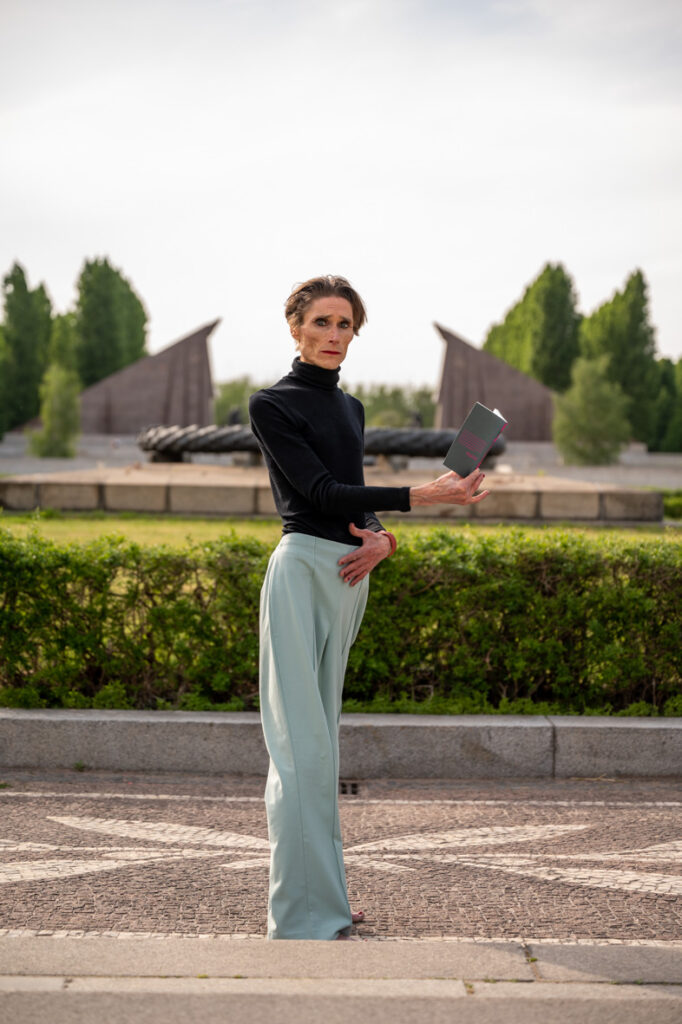
As the situation worldwide for trans, non-binary, marginalised genders and others who identify, like you, as multi-gendered is getting increasingly difficult, with high profile individuals and politicians making statements both as alleys and as foes – do you feel society has shifted in its views since you were reborn as Madame Nielsen in 2013 towards the community? What role does your work (or work by others you admire) play in bringing a wider understanding of the multi-gendered experience? Do we need to understand each other to co-exist? Is it possible?
In my literature there are no stable identities; identity is an illusion, a poor means used by human beings who are afraid of the vast possibilities of being and existence, who hide in the illusion of self-identity, in authenticity.
“I want to go beyond identity, not just personal, but as an avantgarde: I think the only possible future of life in peace on this planet goes through non-identity, de-identifying.
Thus I am not only multi-gendered, I am beyond gender. And I think the only way to peaceful and rich co-existence goes through seeing any other living being as an endless, inexhaustible potentiality.
Sadly, most societies in our time – be it left-wing or right-wing or … – are getting more and more obsessed with identification – identifying others and themselves.
This makes my work even more important.”
Thinking of Queer Situations Literary Festival – your event is down as a ‘reading and performance’ – what might we encounter?
“As we have only a very limited budget – economically and in terms of time – I will do some very simple, almost traditional performances:
1. a reading from the novel LAMENTO, which will be published in English translation in 2025 by Prototype Publishing in London. LAMENTO is a very dark love-story, but some of the things that turn it dark are the derive of identity, and almost physical self-destruction. And maybe I will focus on parts that highlight this.
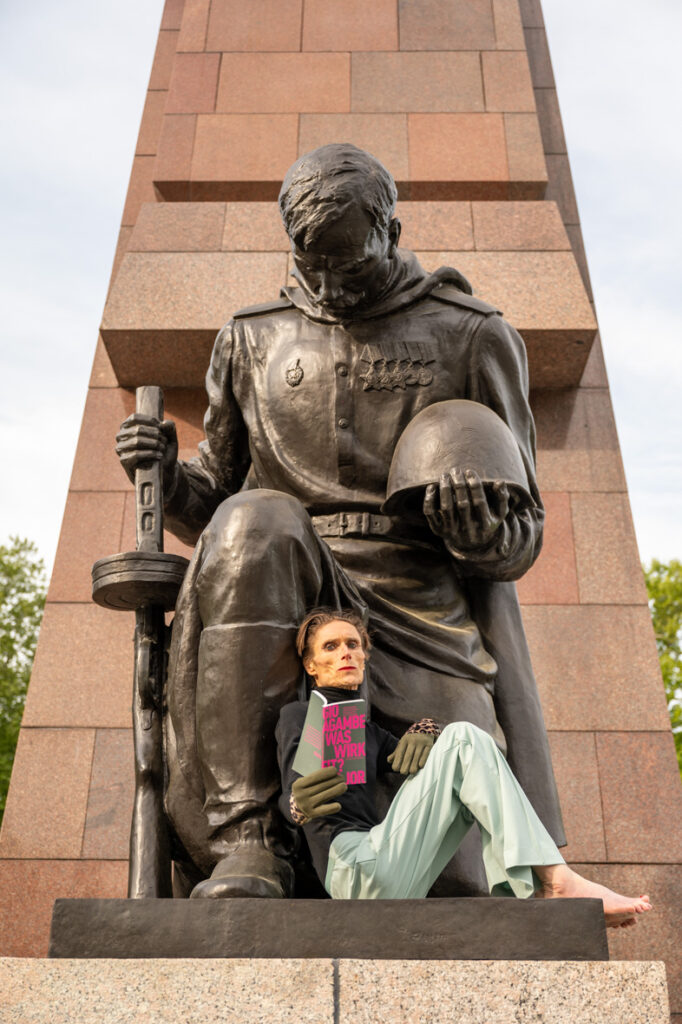
I hope to do a collaboration with an Icelandic photographer: To do some photo-performances with my naked, but completely gold-painted body in the spectacular Icelandic landscapes.
2. a reading from the “New York Noir” THE MONSTER, a quite radical novel, which takes the protagonist to the limits of the dissolving of the self and the individual.
3. a little solo-concert with my songs and voice-works.
4. AND then I hope to do a collaboration with an Icelandic photographer: To do some photo-performances with my naked, but completely gold-painted body in the spectacular Icelandic landscapes, searching – through performance and photography – in the other-planetary Icelandic landscapes to envision other forms of alien beings.”
Readers can witness Madame’s performance at Queer Situation’s Literary Festival on Friday 23rd of August at 20.30.

